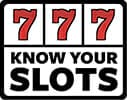Many players know that concentrating play with one casino players card/program can have benefits, due to better perks if you’re a higher tier, better offers from play at one casino vs. spreading it out, and so on.
However, some of the finer details take a bit of getting to know, and I see some common confusion and questions that pop up around this, and so in today’s post I’ll go over some of those common areas and how to navigate things.
Tier Credits and Comp Dollars Tend to be Universal
With MGM Rewards’ changes that bring some uniformity to the program nationwide, and their conversion of Borgata directly into the program last year, they join other programs that have you earning towards the same tier credit goals, and the same comp buckets, regardless of property you play at.
The benefits of this are simple – you can build your tier level, and your comp dollar balances, at any property they own, and redeem at any property they own. The specific redemption rules could differ by property (some restaurants might be 1:1 vs 2:1 redemption, for example), but you know what you have will be available.
For players who travel around to places where their preferred casino company has casinos, this can be quite helpful, and of course makes understanding what you get out of your play a bit easier to follow vs. knowing multiple programs.
Rated Play, and Therefore, Offers, are Primarily by Market
Each time you visit a casino, it will keep track of your play, as long as you use your players card. Based on your play, the casino will generate offers.
When you play on a card that’s part of a national program, your play in one area will generally be confined to that area for the purposes of offers. For instance, your play in Atlantic City will be what is the basis of your Atlantic City offers. If you then go play in Las Vegas, your play in Las Vegas will determine those offers, separate from Atlantic City offers.
The main exception would generally be a teaser offer by companies with casinos in different markets. If you play in Atlantic City with a consistent budget each trip, the casino company may take an educated guess that you’ll play in another market with a similar budget, and extend an offer accordingly.
Once you play in that new market, offers from that point would come off your play in that market.
For instance, one of my home casinos, Mohegan Sun, has extended me offers for both their Atlantic City property (Resorts) and Las Vegas (Mohegan Sun Casino at Virgin Las Vegas), based on my play in Connecticut. The offers that followed were then based on my first (and any subsequent) visits directly to those properties, unrelated from Connecticut.
As a result, offers in one market can’t be transferred to another, and this can be for a variety of reasons, but the containment of the offers is the most common. On a very rare occasion have I seen offers that could be redeemed in multiple markets.
How Offers in a Single Market Get Generated Can Vary
On the other hand, when focused on a single market, there’s still some divergence in how companies with multiple casinos there operate. While Las Vegas is primarily where this even occurs, there are other markets, like Atlantic City, Laughlin and Reno, where at least one casino owner owns multiple casinos in a single market.
It’s helpful to find out how play is rated in those situations, because that can affect your offers. There are three general buckets.
All Play is Rolled Up in a Market
MGM and Caesars generally work this way – play from any of the casinos in a given market is rolled together and a universal offer is then made available. Because they have (for instance in Vegas) properties with differing levels of value in their setup and branding, you might find the offers may give you better perks at lower end properties vs. higher end, such as number of nights allowed or free play amounts.
In Atlantic City, where Caesars owns three properties, I tend to get a better room availability for Harrah’s or Tropicana than I do Caesars.
There are exceptions to this: Caesars is still rolling properties up into the main Caesars Rewards structure, and in markets where this is incomplete, like Tropicana Laughlin, you will likely get offers separately from Harrah’s if you played at both properties.
They got Tropicana Atlantic City into the main program on the speedy side, probably to avoid confusion as Bally’s Atlantic City left the program under new ownership.
Each Property Gives Different Offers
The other common scenario, seen most often in Las Vegas, is that each property will provide its own offers based on your play at that specific property. I’ve seen this with the Station and Boyd casinos, where both have offers aligned with wherever I’ve played at a given point.
Given that, if you jump around their properties and play, while you’ll certainly earn comp dollars and tier credits that are universal, your offers will be spread more thinly as you did your play. So if you don’t play to a free room level at any one property they own, you might just get offered a bunch of discounts, whereas MGM or Caesars would roll all that together and give you an offer that includes a room.
So depending on your priorities for gambling, if those room offers matter, make sure you know how your players card program works for the casinos you’ll be favoring on your trip.
Something In Between
It’s also possible that a set of casinos with a shared card may roll some things together, and not some things together. The most prominent example that came up in a conversation recently is The One Card, which is the card that links Circa, The D and Golden Gate in downtown Las Vegas.
In the case of the tier credits and comp dollars earned while playing, it is universal, like the other programs. But they also roll up the food and beverage monthly offer to be available across all their properties. This makes sense to some degree, given the limited options at The D and Golden Gate, especially after the pandemic, where some options just didn’t return.
However, the room and free play offers are set up individually. I tend to get different offers for free play, which look tied to my specific property play. I haven’t gambled at Circa yet, and I don’t get anything there. I’ve played more at The D, so my offer there is strongest. And Golden Gate is in between, and so goes my offer there too.
The rooms are a bit harder to decipher – I get an offer that’s unique from each property, but it tiers from best at Golden Gate (the lowest end of their hotel options) to a discount at Circa (which is clearly their top tier property). So that might be based on overall aggregate spend as well, but they still deploy a distinct offer for each property.
Know Your Loyalty Programs
Many gamblers invest many hours, and many dollars, into their favorite casinos. I say invest because it’s that cycle of perks from comps and a players card tier that many see as the trade-off – they choose a casino or casino group because of the perks they get from that program.
However, if you don’t understand some of the nuances of how offers are calculated based on where you’re playing and with who, it can lead you to leave benefits on the table. So it’s important to not just know your slots, but know your loyalty program or programs with which you choose to affiliate.








